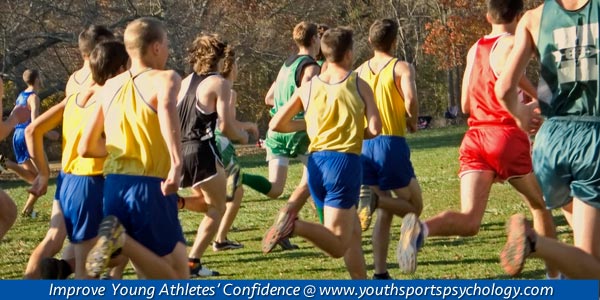The Pitfalls of High Expectations
Just how many ways can young athletes sabotage their sports performance?
In lots of ways, says Dr. Harold Shinitzky, a sports psychologist and author of “Your Mind: An Owner’s Manual for a Better Life.”
“A lot of athletes, based on how they think of themselves, engage in behaviors that interfere with their ultimate performance. That’s the saboteur,” he says.
Examples? When kids decide to eat poorly, get little sleep, or engage in other activities that trip them up, they’re sabotaging themselves, he says. They also think in ways that sabotage their performance and happiness.
For example, one golfer placed unobtainable demands on himself about his putting. If he missed a putt, he’d dwell on the next one so much he’d trip himself up. “He was setting himself up for failure by holding himself up to unobtainable goals,” says Shinitzky.
Here at Kids’ Sports Psychology, we call this holding high expectations. When kids have such high expectations, they get frustrated when they don’t meet them. They then don’t perform well.
The Solution:
Help your young athletes manage their own expectations.
They need to focus on small, achievable mini-goals—make four good shots on the goal, for example—rather than on getting big wins.
Another way that athletes set themselves up is if they focus on their opponents, not on their own play. This hurts their performance.
Here’s an example: When golfers compete with Tiger Woods, they focus so much on the fact that they’re competing with Woods that they average one stroke worse than usual!
“It’s not that Tiger is changing them. Instead of focusing on their own behavior—which they can control—they focus on an external distraction,” he says.
We call this making comparisons. We think kids need to be aware of when they’re making comparisons—and should take efforts to stop doing this…
They need to understand that making comparisons generally lowers sports kids’ self-confidence. Instead, kids need to change what they focus on. They need to focus on what they should do to get the job done. They shouldn’t put other players on a pedestal.
Kids’ Sports Psychology offers loads of other resources for helping you be the best sport parent possible and help your kids make the most of their physical talent.
If you’re already a Kids’ Sports Psychology member, you can begin by listening to our interview with Shinitzky about kids’ sabotaging their performance. Also free for Kids’ Sports Psychology members are access to e-books, audios and videos that address these topics (and more):
- Appreciate Your Talents: How to Avoid Making Comparisons (e-book for kids)
- Pre-competition Mental Game Review Sheets for Young Athletes (e-book for kids)
- Confidence Video Tip 14: Postgame Tips to Grow Confidence (video for kids)
But that’s not all. At Kids’ Sports Psychology, you can download more than 17 e-books—some written for parents and some specifically for sports kids.
You can also access audio and video programs and articles that help you and your young athletes get the most out of your sports experience.
Related Articles on Kids’ Mental Game:
- High Expectations and Anger in Youth Sports
- Goals vs. Expectations for Kids
- The Pressure of Expectations for Kids
*Subscribe to The Sports Psychology Podcast on iTunes
*Subscribe to The Sports Psychology Podcast on Spotify
Improve Your Mental Game From Anywhere In The World

We’re certain that, as a parent, you want to help your child develop confidence and discipline in sports and life. And as a sports parent, you’d love for your children to reach their potential in sports. But encouraging your child to strive for greatness without pressuring them can be a challenge.
You can get expert mental coaching with us from anywhere. Meet with us via Zoom, Skype, FaceTime or phone call. With today’s video technology, we are able to connect with athletes and coaches all over the globe.
Call Us Today to Schedule Your Free 15-Minute Session.
Find Out How Your Athlete Can Benefit From One-on-One Mental Coaching!

